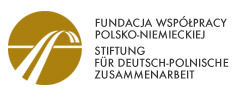Environmental Policy counts in the EU
Almost nine in ten EU citizens say environmental policy is "just as important as economic policies".
06.05.2005 |Sascha Gabizon
Environment "as important as economy" - EU poll
Environment Daily 1871, 02/05/05
Almost nine in ten EU citizens say environment policy is "just as important as economic policies," according to a new opinion poll of attitudes to green issues. Environment commissioner Stavros Dimas has hailed the findings as giving the EU a "clear mandate to continue working to deliver a high level of environmental protection".The Eurobarometer survey updates a poll on attitudes to the environment carried out in 2002 (ED 06/06/02), and incorporates for the first time views in the ten new member states. It finds that 85% of respondents want policy makers to consider environment policies as equal in importance to economic and social policies.
Slightly more - 88% - said environmental concerns should be "taken into consideration" when making decisions in areas such as economic policy. Almost three-quarters of people (72%) thought that the state of the environment influenced "very much" or "quite a lot" their quality of life - a figure comparable with the perceived influence of economic (78%) and social (72%) factors.
Friends of the Earth said the findings should make Commission president José Manuel Barroso rethink his rhetoric of prioritising economic development. "It shows that the current obsession in Brussels of putting the economy above social and environmental factors is wrong," EU policy director Martin Rocholl said.
Four areas of policy emerge from the survey as of greatest concern to EU citizens: water pollution, man-made disasters such as oil spills, climate change and air pollution. Each was picked out as a "main worry" by almost half of respondents. Fewer were concerned about chemicals (35% said it was one of their top-five worries), waste (30%), the use of GMOs in farming (24%), biodiversity loss (23%) or "consumption habits" (13%).
The survey also found great differences between the old EU-15 and the new EU-10 member states: climate change was the number one worry in the old members, but ranked only seventh among the new ones, behind concerns over water and air pollution and waste treatment.
Meanwhile trust in environmental groups and scientists as sources of environmental information has declined slightly, whereas trust in the media has increased significantly. The number of people thinking that the EU is the best level of government to tackle environment issues rose slightly to 33%. The same proportion believe national government to be the best level.
Follow-up: Eurobarometer,
plus the report, in summary and in full. See also press release from Commission.
As far as WECF's knows, it is the first time that all questions are disaggregated by gender, this is a very interesting development. Men seem to be significantly more concerned about "Climate Change", women seem to be more concerned about "natural disasters" and slightly more concerned about the "impact of chemicals on health".
Download the Eurobarometer summary (512 KB, pdf).
Brussels, 29 April 2005
Europeans want policy makers to consider the environment as important as economic and social policies
For Europeans, a healthy environment is as important to their quality of life as the state of the economy and social factors, according to a new Eurobarometer survey. The environmental issues that citizens worry most about are water pollution, man-made disasters, climate change, air pollution and chemicals. The survey is also the first to examine attitudes towards the environment across the enlarged EU-25.
Environment Commissioner Stavros Dimas said: "This survey is proof that European citizens care greatly about their environment, and believe that it is intrinsically linked to their quality of life. The results give a clear mandate to the Commission to continue working to deliver a high level of environmental protection. Eurobarometer findings also confirm that the public shares the Commission’s conviction that a strong environmental policy can be an engine for innovation and growth.”
Main findings
The large majority of EU citizens (88% of respondents) believe that policymakers should take account of environmental concerns when developing policies in other areas such as economy and employment. This view is expressed most strongly in the new Member States. Asked to rate the influence of economic, social and environmental factors on their quality of life, 72% of citizens said environmental factors influenced it “very much” or “quite a lot”. Economic factors were described in this way by 78%, and social factors ranked as high as environmental (72%).
The results confirm the findings of a February 2005 Eurobarometer poll on the Lisbon Agenda which concluded that the vast majority of people consider that environmental protection policies are above all an incentive for innovation (64%) and not an obstacle to economic performance (20%). This poll also revealed that European Union citizens give priority to protecting the environment over economic competitiveness (63% compared with 24% who disagree).
Citizens perceive the European Union (33% vs. 30% in 2002) and national governments (33% stable) as the best levels for environmental decision-making.
The main environmental concerns of Europeans are those that directly affect their lives. Five priorities stand out – water pollution (47%), man-made disasters such as oil spills and industrial accidents (46%), climate change and air pollution (both at 45%), and chemicals (35%). However, there are some significant differences between the former EU-15 and the ten new Member States (EU-10). For example, climate change is the number one issue in the EU-15 and only on rank 7 in the EU-10.
Asked if they feel sufficiently informed about environmental issues, 54% of respondents feel well informed whereas 44% feel they are badly informed. The two issues where respondents feel the greatest lack of information is the health impact of chemicals (41%) and GMOs (40%).
When it comes to sources of environmental information, citizens most trust environmental associations (42% vs. 48% in 2002), followed by scientists (32% versus 35% in 2002) and television (27% vs. 18% in 2002). Compared with the last survey in 2002, confidence in media has increased significantly.
Background
The survey was carried out between 27 October and 29 November 2004 on a sample of approximately 1,000 citizens in each Member State.

































